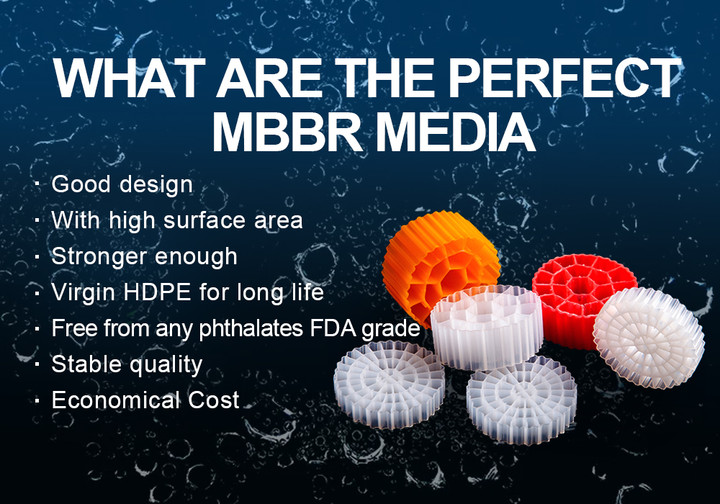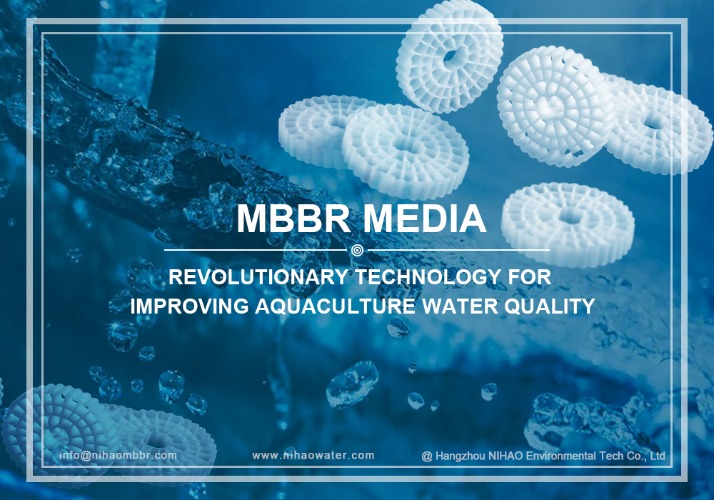With the continuous development of aquaculture, water quality management has become one of the key issues. In order to address the challenges of water pollution and environmental degradation in aquaculture, the modern aquaculture industry has introduced a revolutionary technology - The Moving Bed Biofilm Reactor (MBBR). This article will introduce the principle of MBBR technology, its application in aquaculture ponds, and explain the many benefits of MBBR in water quality and aquaculture.
Part 1: Introduction to MBBR Technology
MBBR technology is a water treatment technology based on biofilm processes, which introduces suspended biological carriers, such as plastic fillers, into the reactor to provide a large amount of attached biological surfaces and promote the growth of biofilms. These biofilms play a crucial role in treating pollutants in water, converting harmful substances into harmless ones through microbial degradation.
Part 2: Application of MBBR in Aquaculture
The application of MBBR technology in aquaculture ponds can significantly improve water quality. By connecting the MBBR reactor to the aquaculture pond, water quality can circulate between the two, effectively removing pollutants such as organic matter and ammonia nitrogen from the wastewater. At the same time, MBBR technology can also stabilize the pH value of water quality, reduce the fluctuation of oxidation-reduction potential, and provide a more stable environment for aquaculture.
MBBR technology can efficiently degrade organic matter in water through a biodegradation mechanism. The organic waste generated during the breeding process, such as feed residues and feces, can lead to deterioration of water quality and adverse changes in the breeding environment. MBBR technology can quickly degrade these organic substances into harmless waste, maintaining the cleanliness and stability of water quality.
- Ammonia nitrogen removal:
Ammonia nitrogen generated during aquaculture is a common pollutant that has a negative impact on the health and growth of aquaculture organisms. MBBR technology converts ammonia nitrogen into relatively stable nitrate through microorganisms in biofilms, thereby reducing ammonia nitrogen pollution to water bodies and ensuring the growth and health of aquaculture organisms.
Part 3: Advantages of MBBR Technology
MBBR technology can significantly improve water quality by degrading pollutants through microorganisms in biofilm reactors, reducing the content of organic matter, ammonia nitrogen, and other pollutants, and providing a clean and healthy water environment.
- Environmentally friendly:
Compared to traditional water treatment methods, MBBR technology does not require the addition of chemical agents, reducing negative impacts on the environment. At the same time, it can efficiently treat wastewater and reduce pollutant emissions during the aquaculture process.
- Space and energy efficiency:
MBBR technology utilizes high surface area biofilms to reduce the volume of treatment facilities and save space. In addition, MBBR technology has relatively low energy demand and high energy efficiency.
- Stability and easy operation:
MBBR technology has good stability, and strong adaptability, and can cope with water quality fluctuations and load changes. At the same time, the MBBR system is relatively simple to operate and does not require complex operating techniques, reducing the difficulty of farm operation.

Further promotion and expansion of the application of MBBR technology in aquaculture can bring more benefits and advantages.
1、Improving aquaculture efficiency: By using MBBR technology to improve water quality, reduce diseases and mortality during the aquaculture process, and increase the growth and survival rate of aquaculture organisms. Improving water quality can also promote feed conversion rate and breeding efficiency, reduce breeding costs, and increase output.
2、Excrement resource utilization: MBBR technology can effectively degrade organic waste and produce relatively stable waste products. These products can be further utilized as resources, such as fertilizers or fermentation substrates, for plant cultivation or biomass energy production, achieving the recycling of aquaculture waste.
3、Technology integration and intelligent management: MBBR technology can be combined with other water treatment technologies, such as aeration systems and aquatic plant treatment, to form a comprehensive water quality management system. At the same time, with the help of intelligent monitoring and control technology, real-time monitoring and regulation of the MBBR system can be achieved, improving the operational efficiency and stability of the system.
4、Ecological restoration and environmental protection: MBBR technology can reduce the discharge of organic matter and pollutants in wastewater, prevent eutrophication and algae outbreaks in water bodies, and maintain the balance and stability of water ecosystems. Achieving a balance between aquaculture and environmental protection and achieving sustainable development.
Conclusion:
MBBR technology, as an advanced water treatment technology, has broad application prospects in aquaculture. By improving water quality, and degrading organic waste and ammonia nitrogen, MBBR technology has created cleaner and more stable conditions for the aquaculture environment, improving aquaculture efficiency. In addition, MBBR technology can also promote the utilization of waste resources, technology integration, and intelligent management, as well as the restoration of water ecosystems and environmental protection. Therefore, promoting and applying MBBR technology is of great significance for the sustainable development of the aquaculture industry, providing strong support for achieving efficient and environmentally friendly aquaculture.


